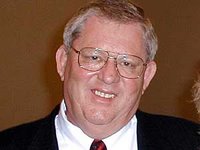 despite strict sentencing guidelines that limit their discretion, federal judges still exert some control over punishment severity. principally, they can adjust offense levels based on the facts of the case and depart from the guidelines altogether based on the fit between law and facts.
despite strict sentencing guidelines that limit their discretion, federal judges still exert some control over punishment severity. principally, they can adjust offense levels based on the facts of the case and depart from the guidelines altogether based on the fit between law and facts.
the chicago tribune reports a new article by max schanzenbach and emerson tiller on the political orientation of judges and sentencing outcomes. the analysis suggests that Republican appointees to federal district courts punish drug trafficking, theft, and violent offenses more harshly than Democratic appointees. conversely, there is some evidence that Democratic appointees raise punishments for white collar offenses by adjusting offense levels upward.
max is a phd economist as well as a jd, exemplifying the trend toward law profs with disciplinary phds and advanced methods skills (he was also my gracious host during an informal lunch talk at northwestern law). this project would seem to present some tricky level-of-analysis ecological issues and nonlinearities. nevertheless, after a very quick read of the full paper, i think the model is generally well-specified, at least within the limits of the data. the substantive story is reasonable and the authors seem both sensitive to and authoritative about the underlying mechanisms linking the putative cause (partisanship) and effect (outcomes).
for a couple reasons, i think the estimated effects of partisanship might be conservative (too low rather than too high). first, the federal courts do not see a lot of “street” crime. relative to state courts, violent offenses in the federal system tend to be acts such as bank robbery rather than, say, strongarm robbery; drug offenses tend to be moderate-to-large-scale trafficking rather than small-time dealing or possession. so, detecting any difference between street versus suite crime would be difficult within the federal system.
second, these effects were observed from 1992 to 2001, a period in which partisan effects may have been muted rather than exaggerated. it would be laughable to characterize Democrats of the era as “soft on crime.” rather than soft versus hard, it might be more apt to characterize the contrast as harsh versus draconian.
since i haven’t done any sentencing research, however, i’ll need a sentencing expert such as celesta albonetti or rod engen to break the full implications down for me. provisionally, however, i’ve reached the following conclusions: (1) if (when?) i’m hauled into federal court for illegally trading oil stocks, i’ll angle for a bush appointee; and, (2) if (when?) i’m hauled in for possessing my 500-count bottle of generic sudafed, i’ll shop for a clinton appointee.






